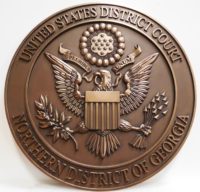Originally published on Forbes.com.
Things have not been great for the syndicated conservation easement (SCE) industry. Late in December, two accountants who focused on SCE pled guilty to conspiracy. The circumstances of their pleas indicate that they are cooperating with the prosecution. The latest is that David Deary’s firm has filed a complaint in another class action lawsuit – the third by my count (You can read about the other two here and here.)
Complaint
By its nature a complaint is a very one sided document. The lead plaintiffs, William Peskin and Mark Perkins, through their attorney, are alleging that they were led astray by a conspiracy of promoters, professional advisers and a land trust. I have not been able to raise a response from any of the defendants other than one who indicated they have not yet been served, so you can look at the complaint if you want to know who they all are.
The Narrative
The complaint describes a widespread scheme that occurred over a period of several years by was of representative examples. The allegation is that the defendants are a group of conservation easement professionals and advisors “who deliberately banded together to give only the appearance of legitimacy to the SCE strategy” (Emphasis in original).
The story is rooted in the 2008-2009 recession which left a rampant oversupply of devalued real estate along with a group of underemployed real estate appraisers. The unproductive real estate could be purchased at a discount and sold to investors at a premium for the purpose of placing a conservation easement on it.
According to the complaint the rules are so technical that they could not be understood by laypersons such as the plaintiffs. The complaint presents the defendants as scheming together but representing to the plaintiffs that they were independent professionals.
The Big Picture
I have covered SEC and conservation easements in general pretty thoroughly over the last decade. SEC is based on the notion that a conservation easement on a piece of property can be worth substantially more than the property itself can command in the current market. That is why I refer to it as an industry based on nonsense.
What we are seeing now is similar to what happened with the Son of Boss and similar shelters from the turn of the millennium. The IRS has identified the transactions as abusive. DOJ has been seeking injunctions against major players. GAO has investigated. The Senate Finance Committee has investigated.
There have been a string of IRS victories in Tax Court and they have finally been addressing valuation. And now the class action lawsuits are marching with the criminal investigations.
I fear things are going to be much worse for the players in the SEC game than it was for the Son of Boss crowd which included the top accounting firms in the country. On the counterparty side on Son of Boss there were institutions like Deutsche Bank. Here we have land trusts.
From The Legal Brain Trust
I thought it would be worth checking with one of my legal source who prefers to remain off the record to reflect on whether the investors in the shelters really qualify as innocent wronged parties.
Well, of course, ultimately the pitch for their “innocence” is to the jury. The pleadings then become irrelevant. But, the plaintiffs’ lawyers have to set the tone for what is to come in the pleadings (repeating the theme early and often).
The key is to have one or more principal actor defendants who have deep pockets and, at the end of the day, will be concerned that there is some litigation risk that the jury may put the actions on a continuum and decide the case relatively. Sure the taxpayer investors were greedy and should have smelled a rat, but we (the jury) are still going to punish the rat who is the worse actor.
I think in these deals from a tax compliance perspective, the taxpayers are not innocents and should be heavily penalized (criminally and civilly). That would certainly send a message. But, in most cases the IRS and DOJ focus on the promoters for punishment. And I think that dynamic plays out before juries as well. Sure, the taxpayer is not so innocent, but the promoters making the really outsized fees and other remuneration are the really bad guys. Nail them.
“Factual Freddie”, who is a close follower of the SCE industry wrote me:
As a tax professional, I find the represented facts that the sponsors and advisors did not communicate with the taxpayer/investors about the status of IRS audits and the tax court proceedings to be unconscionable. The lawyers will determine the legal consequences of this breach of professional standards.
Conclusion
What we are likely going to see now is something of a slow motion train wreck that will devastate a good number of financial professionals in the Southeast. A similar thing will be happening in part of the micro-captive insurance space. Sources tell me that there is overlap in the two fields in terms of promoters and investors.
As night follows day, I have little doubt that new forms of abusive tax shelters are arising. I can’t help but think that there will be some opportunity in opportunity zones that the creators of that scheme did not see as a possibility. When the pitch comes to you think about Reilly’s Second Law of Tax Planning – Sometimes it’s better to just pay the taxes.
































































































Those accountants were indicted for backdating K1’s, checks and filings. That’s the real crime but gets hardly mentioned. Guilty plea had nothing to do with easements in a sense. But hey, whatever headline fills their narrative.